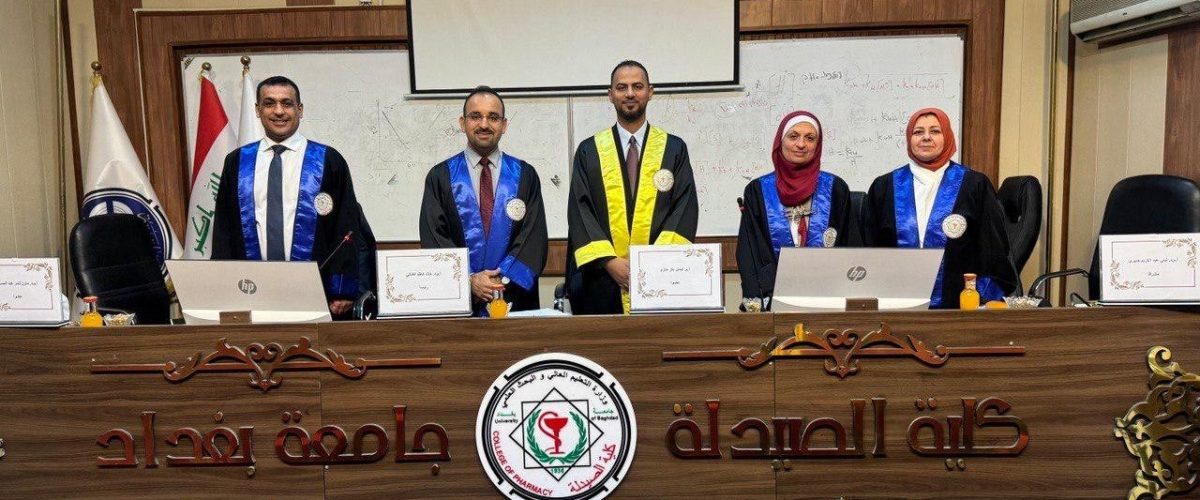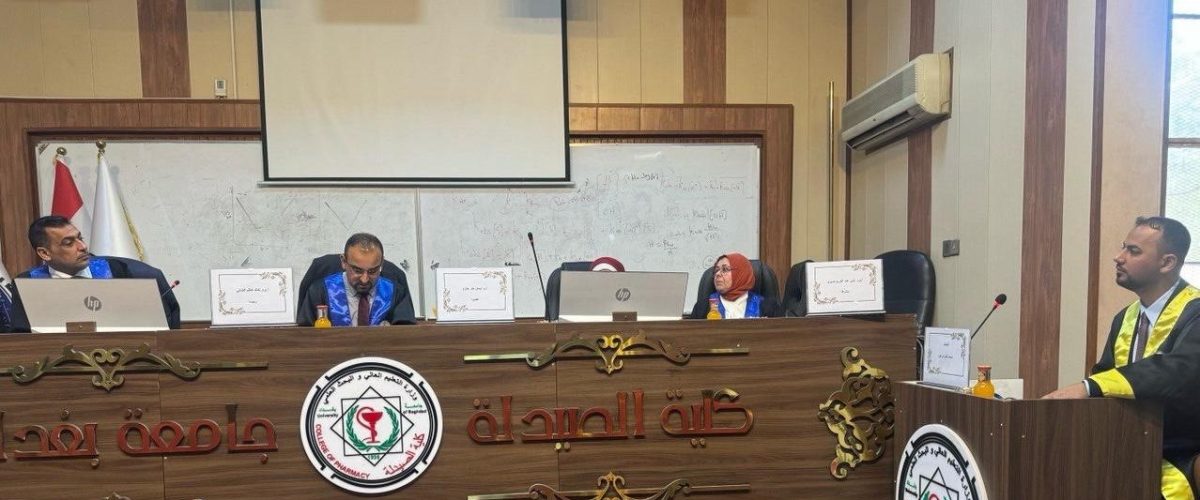The College of Pharmacy discussed the MSc thesis entitled “Preparation and Evaluation of Spanlastic Vesicles for Enhanced Transdermal Delivery Using Meloxicam as a Model Drug” by Mohammed Khaleel Ibrahim and the supervisor, Assistant Professor Dr. Lubna Abdalkarim Sabri in the Pharmaceutics Department. The study aimed to prepare an optimum formula of meloxicam-loaded spanlastics by studying the formulation variables that may affect their properties using the ethanol injection method and then incorporating them into the hydrogel to improve transdermal drug permeation and patient compliance. The results showed that changing the formulation parameters, including the type and size of the internal phase solvent (ethanol, chloroform), the type of edge activator, the ratio of Span 60:edge activator, and the amount of meloxicam, had an impact on the particle size, polydispersity index, and entrapment efficiency. The optimum selected formula showed sustained drug release for about six hours. The zeta potential was -4.51 mV, and the particles were 495 ± 9.9 nm in size and had a spherical vesicular shape when examined by electron microscopy. The prepared hydrogel based on carbopol 940 and loaded with meloxicam nanospanlastics showed an enhancement in permeation ratio of 83.52 times through the rat skin compared to the plain meloxicam hydrogel. Overall, the results indicated that spanlastics have the potential to be carriers for transdermal drug delivery systems.




